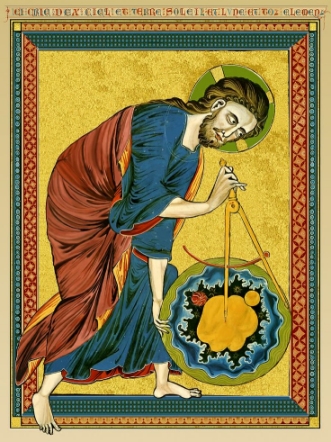
First, there is an obvious philosophical reason: God is the source of all that science studies, so it only makes sense to discuss Him in the context of studying His creation. Consider, for example, teaching a course on U.S. Law. Would you try to teach it without referring to the U.S. Constitution? Perhaps. Maybe there are law professors who do just that, but for me, I can’t imagine discussing U.S. law without discussing the source from which it comes. In the same way, I find it pointless to discuss science without discussing its source.
Second, there are practical reasons to discuss God while teaching students about science. If we emphasize the fact that the things we study as scientists are designed, we give students a superior way in which to view the natural world. Those who want to reject the idea of a Creator God will try to convince students that this world was “thrown together” by random chance. As a result, students get the idea that creation is full of shabby constructions. Of course, nothing could be further from the truth. The designs found in the natural world make our best technology look like garbage. This has led one desperate atheist to write:1
Biology is the study of complicated things that give the appearance of having been designed for a purpose.
Of course, a more reasonable evaluation of the data leads us to the conclusion that biology is the study of things that have been designed for a purpose.
This is very important, because when we understand that biology is the study of designed things, we don’t fall prey to misconceptions that hold back the progress of science. How many lives have been wasted because scientists looked at the primary cilium as a evolutionary vestige rather than an antenna designed to receive signals? How long did scientists delay a more detailed understanding of genetics because of the nonsensical notion of “junk DNA”? How many people needlessly suffer relapses of intestinal bacterial infections because of the silly idea that the appendix is a vestigial organ? A scientist who understands that the natural world is designed is simply better able to interpret what he or she is studying, since it is the more realistic view.
Finally, there is a spiritual reason to include God in science. As Nobel laureate Dr. Arthur Leonard Schawlow once put it:2
But the context of religion is a great background for doing science. In the words of Psalm 19, “The heavens declare the glory of God and the firmament showeth his handiwork.” Thus scientific research is a worshipful act, in that it reveals more of the wonders of God’s creation.
Ever since I became a Christian, science has been a worshipful act for me. There is no way I could write about this worshipful act without including the One who is being worshipped!
REFERENCES
1. Dawkins, R., The Blind Watchmaker, W.W. Norton & Company, New York, USA, p. 1, 1986.
Return to Text
2. Cosmos, Bios, Theos, Henry Margenau and Roy Abraham Varghese, ed., Open Court Publishing 1992, p. 106.
Return to Text

Well said.
I would assume that anyone who would ask you that question has never actually read any of your textbooks, or if they have, they skipped over the introduction. At least in your first book, Science in the Beginning, you give a very detailed reason as to why you include God in your textbooks, right at the beginning of the introduction. I’m assuming you do the same in your other textbooks.
I think James Prescott Joule deserves to be quoted in this blog post:
“After the knowledge of, and obedience to, the will of God, the next aim must be to know something of His attributes of wisdom, power and goodness as evidenced by his handiwork. It is evident that an acquaintance with natural laws means no less than an acquaintanceship with the mind of God therein expressed.”
You are correct. He had not read my books. He probably hadn’t read any science history books, either, as the question is nonsensical to anyone who knows science history.
That is one of my all-time favorite quotes. Thanks for adding it!
Your welcome. I actually copied it from your textbook!
I wonder, though, is this individual HAS read science history books, but the ones he read just happened to not contain that pesky little detail, that modern science was born out of Christianity.. It seems to be a subject of which the general public is no longer aware, and seems to be (accidently on-purpose) left out of most secular education.